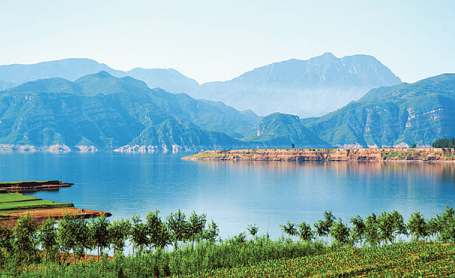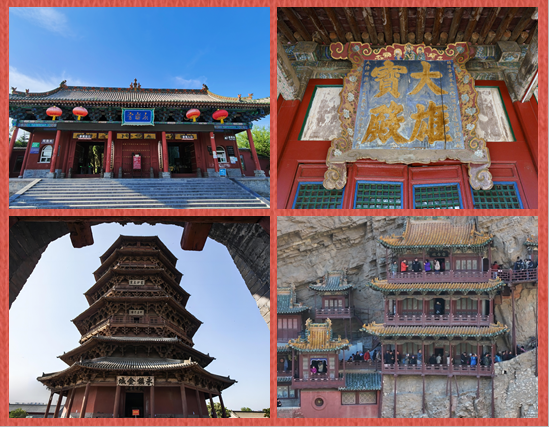Birds winging their way to nest in wetland park
Updated: 2022-05-13

Gucheng Wetland Park in Yuanqu county is the first national-level wetland park in Shanxi province. [Photo/China Daily]
Gucheng National Wetland Park in the Shanxi county of Yuanqu welcomed an increased number of birds in late spring, which shows it is becoming an attractive home to wildlife.
The park, on the northern side of Gulangdi, a large reservoir on the Yellow River, is Shanxi's first national-level wetland park. Benefiting from its improving ecological environment, local people said it has offered them a better living environment too.
Han Jun, a resident in Gucheng village, operates a family bed-and-breakfast business near the park.
"Over the past 10 years, we have seen a growing number of visitors to the wetland park," Han said. "As more customers have come to my lodge, my family revenue has increased year by year."
Qiao Xiaozhan, another Gucheng resident, recalled that the site had been a huge mud flat before it became a wetland park.
"The mud flat, covered by rampant weeds, used to be a dangerous natural trap for all," Qiao said. "Nobody dared to walk there."
But now it is a popular destination for tourists to visit and locals to relax. The change is a result of a 10-year renovation project launched by the county government of Yuanqu.
According to Pang Weimin, head of the park's protection center, the renovation project involved returning 1,200 hectares of farmland to wetland, moving local residents out of the park and banning polluting agricultural activities nearby.
The official said the hardest part of the initiative was the relocation of more than 20,000 residents.
"The relocation was made possible with persuasion, compensation and multiple measures to offer them jobs and business opportunities," Pang said.
Xi Lanying, a former resident in the wetland park site, said she was glad to move out.
"My farmland near the reservoir could be flooded several times a year," Xi said. "It was not a reliable source for making a living."
Now Xi and her husband are hired by the park to take care of its tree seedling greenhouses. Their annual net income is more than 50,000 yuan ($7,435).
Pang said he is happy to see the increasing numbers and varieties of birds and animals in the park. One important mission for him is to record the number and activities of wildlife.
"Now we have more than 20 black storks in the park," Pang said. Black stork is an endangered species on China's protection list.
Guo Yanjie contributed to this story.



